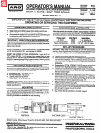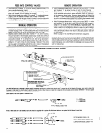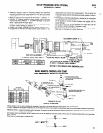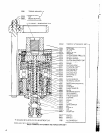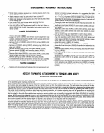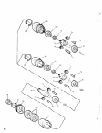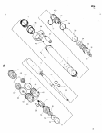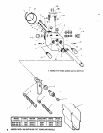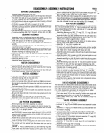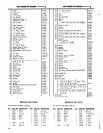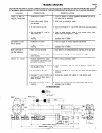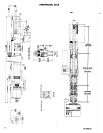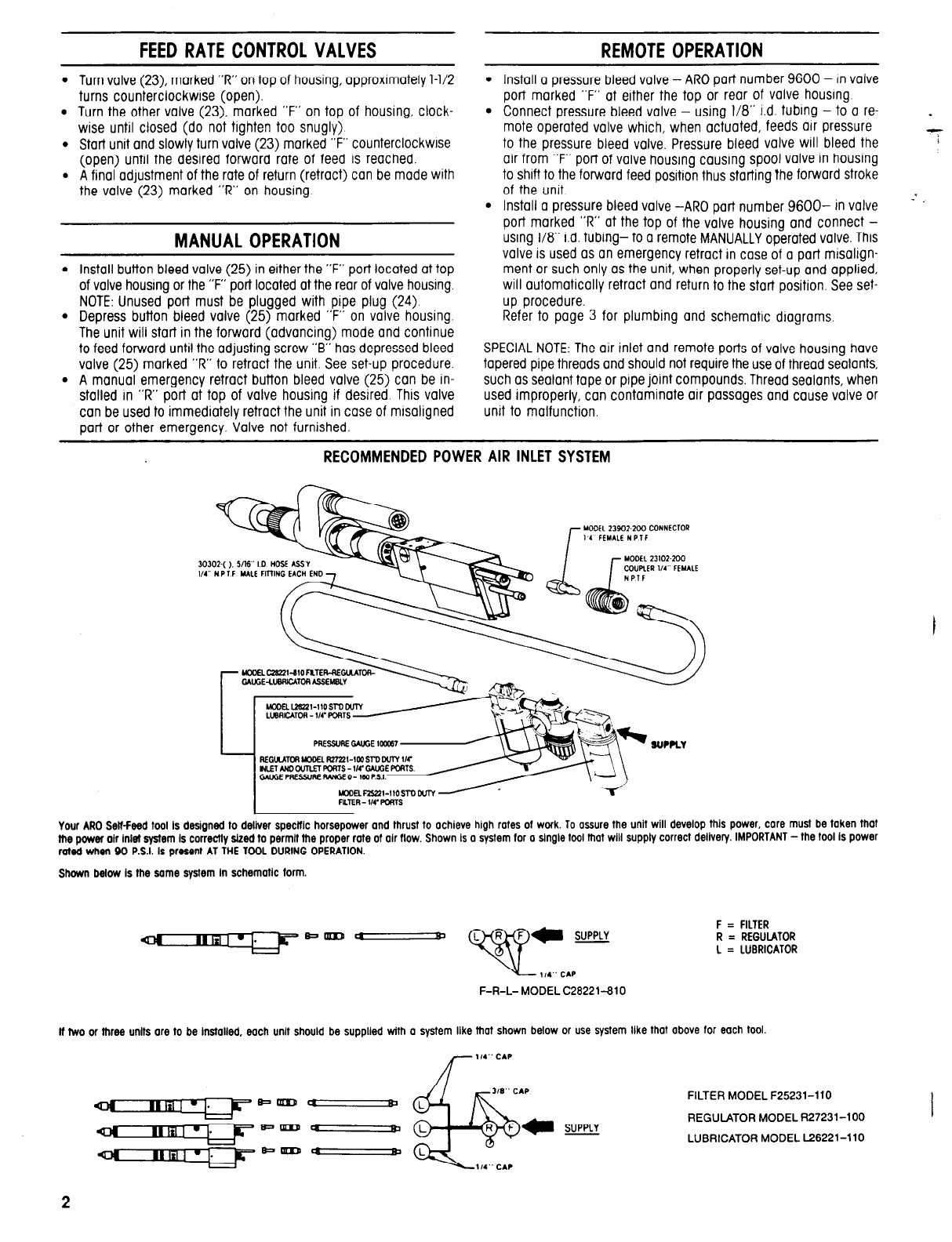
FEED RATE CONTROL VALVES
l Turn valve (23), marked “R” on top of housing, approximately 1-1/2
turns counterclockwise (open).
l Turn the other valve (23), marked “F” on top of housing, clock-
wise until closed (do not tighten too snugly)
l Start unit and slowly turn valve (23) marked “F” counterclockwise
(open) until the desired forward rate of feed IS reached.
l A final adjustment of the rate of return (retract) can be made with
the valve (23) marked “R” on housing.
MANUAL OPERATION
l Install button bleed valve (25) in either the “F” port located at top
of valve housing or the “F” port located at the rear of valve housing.
NOTE: Unused port must be plugged with pipe plug (24).
l Depress button bleed valve (25) marked “F” on valve housing.
The unit will start in the forward (advancing) mode and continue
to feed forward until the adjusting screw “B” has depressed bleed
valve (25) marked “R” to retract the unit. See set-up procedure.
l A manual emergency retract button bleed valve (25) can be in-
stalled in “R” port at top of valve housing if desired. This valve
can be used to immediately retract the unit in case of misaligned
part or other emergency. Valve not furnished.
REMOTE OPERATION
Install a pressure bleed valve - ARO part number 9600 - in valve
port marked “F” at either the top or rear of valve housing
Connect pressure bleed valve - using 1/8” i.d. tubing - to a re-
mote operated valve which, when actuated, feeds air pressure
to the pressure bleed valve. Pressure bleed valve will bleed the
air from “F” port of valve housing causing spool
valve
in housing
to shift to the forward feed position thus starting the forward stroke
of the unit.
Install a pressure bleed valve
-ARO
part number 9600- in valve
port marked “R” at the top of the valve housing and connect -
using 1/8” i.d. tubing- to 0 remote MANUALLY operated valve. This
valve is used as an emergency retract in case of o part misalign-
ment or such only as the unit, when properly set-up and applied,
will automatically retract and return to the start position. See set-
up procedure.
Refer to page 3 for plumbing and schematic diagrams.
SPECIAL NOTE: The air inlet and remote ports of valve housing have
tapered pipe threads and should not require the use of thread sealants,
such as sealant tape or pipe joint compounds. Thread sealants, when
used improperly, can contaminate air passages and cause valve or
unit to malfunction.
RECOMMENDED POWER AIR INLET SYSTEM
Your ARO Self-feed tool is designed to deliver specific horsepower and thrust to achieve high rates at work. To assure the unit will develop this power, core
the power air inlet system is correctly sized to permit the proper rate of air flow. Shown is o system for a single tool Mot will supply correct delivery. IMPORTANT
rated when 90 P.S.I. is present AT THE TOOL DURING OPERATION.
Shown below is the some system In schematic form.
F = FILTER
R = REGULATOR
L = LUBRICATOR
must be token that
- the tool Is power
F-R-L- MODEL C28221-810
If two or three
units
are to be installed, each unit should be supplied with a system like that shown below or use system like that above for each tool.
FILTER MODEL F25231-110
REGULATOR MODEL R27231-100
LUBRICATOR MODEL L26221-110
2



